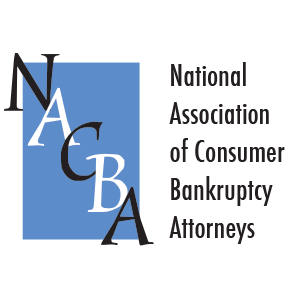The Student Loan Debt Series: Part 1
Where We Are Right Now
Most of us have them. Most of us try really hard to pay them. Most of us don’t understand our rights when it comes to them.
No, I am not talking about credit cards or medical bills. I am talking about student loans. Student Loans recently beat out credit cards as the largest portion of consumer debt out there, topping 1 trillion dollars.
That is trillion, with a T.
But while the amount of student loan debt Americans are taking on may be distressingly high, what is more distressing is that student loans are incredibly difficult to deal with when the borrower is struggling financially.
Student Loans are only dischargable in bankruptcy in cases of extreme hardship. In New Jersey, the borrower has to quote a Chapter 7 trustee at a recent conference “in an iron lung.” Some other states have slightly more generous standards for student loan borrowers in bankruptcy, but here in New Jersey a bankruptcy is probably not going to help you.
The federal government doesn’t offer much in the way of assistance either. Federal student loan borrowers can defer their student loans but only in cases of unemployment or pursuing other degrees and these deferment are limited in time. Once the deferments are used up debtors can go into a forbearance but during this time the interest will toll and debtors are limited to under two years of forbearance. Neither of these options reduces the debt owed or solves the lack of affordability problem.
The government response has been to create extended repayment options, income based payments, and income contingent payment options. This means that a borrower will pay less each month but will be paying the debt for twenty to twenty five years. So if the debtor starts out making not much money and this is the only way he or she can pay for the time being there are some options. However, remember that if the borrower’s income goes up so will that payment and often income based repayment can be problematic for borrower’s living in high cost areas like New Jersey and New York. These income based models are not going to take into account the fact that rent in the Garden State can top $1000.00 a month.
As far as general hardship waivers, the federal government only offers a true hardship waiver in cases of severe disability. Borrowers who are permanently disabled can have student loans waived but must remember that if they take this option they will be ineligible for more federal student loans down the road.
The other thing to remember about the above two options is that they are available for federal loans ONLY. These are not options for those private student loans taken out by some borrowers when the rates were low.
Adding insult to injury in the student loan world are the punishments for default. Defaulting on a student loan can be devastating to your financial existence. A defaulted student loan can drop a credit score up to 100 points meaning you will pay higher rates on everything else you can purchase. On top of that defaulted student loans are subject to harsh penalty fees and increased interest rates on the loans that can make a $20,000 student loan double and become a $40,000 student loan.
And the loan companies aren’t going to be the only ones chasing student loan borrowers anymore. Recently, three major universities, Yale, Penn, & George Washington University, sued their students that defaulted on student loans!
So there is a problem and I know what you are thinking… the bankruptcy lawyer just told me there is nothing I can do and that nobody can help me. That is not the case. There are options out there and Congress appears to be finally taking notice and attempting to propose solutions.
This is just the first in a series of blogs I am going to be doing on student loans. Next week we will review the bills floating around Congress, including a possible change to the bankruptcy code, that could help student loan borrowers with private debt.
Stay tuned!
Interested in how bankruptcy can help you with your finances? Give our office a call at 732-302-9600 or fill out our online consultation form and we will call you!







